Have you recently purchased a DeLonghi portable air conditioner, and you're wondering if you should drain it? And if you decide to drain it yourself, how? We researched these questions, and here is what we found for you.
You should drain your DeLonghi portable air conditioner at the end of the season since they are designed for this. To drain the water, you can follow this simple 3-step procedure:
- Unplug your unit from the wall.
- Locate the drain valve at the side of the unit.
- Drain the water to an empty bowl or container.
Now, what if you're in a humid area? How often should you drain your unit? Stay with us as we tackle this topic and other possible problems you might encounter with your DeLonghi portable air conditioner.
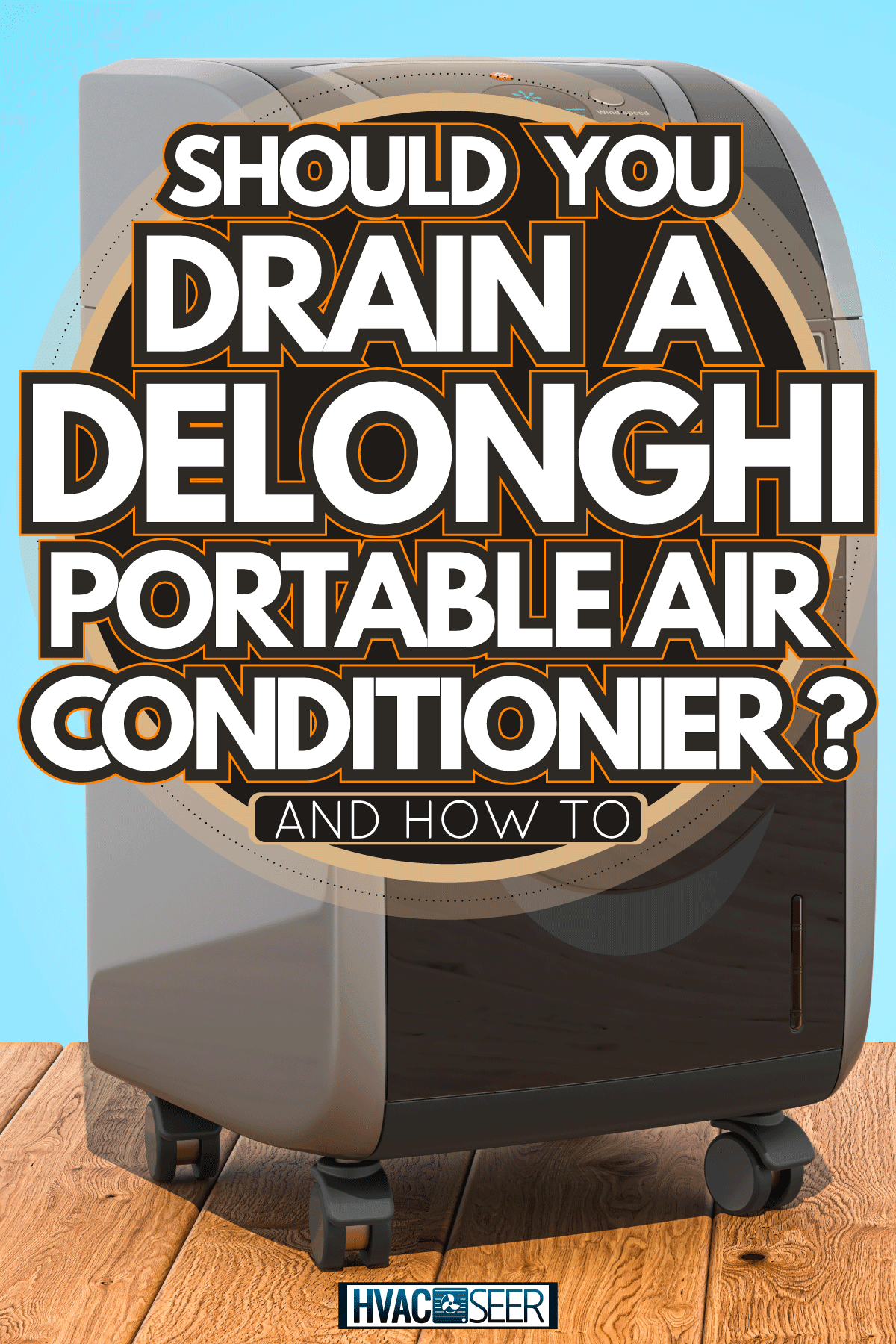
How Often Should You Drain Your DeLonghi Portable Air Conditioner?
As advised by DeLonghi, draining your unit should be done at the end of the season. Depending on the humidity in your room, you need to drain your unit often. In extremely humid areas, draining water should be done every eight hours.
If you live in a dry climate, you won't have to drain your portable air conditioner very often. This is because the water used to fill your portable air conditioner comes from the cooling of warm, humid air.
If the air in your environment is dry, the air conditioner will not extract any moisture.
What Are The Implications Of Not Draining A Portable Air Conditioner?
These are the few possible problems that may arise if you decide not to drain your portable air conditioner:
Float Switch Prompts Unit to Turn Off
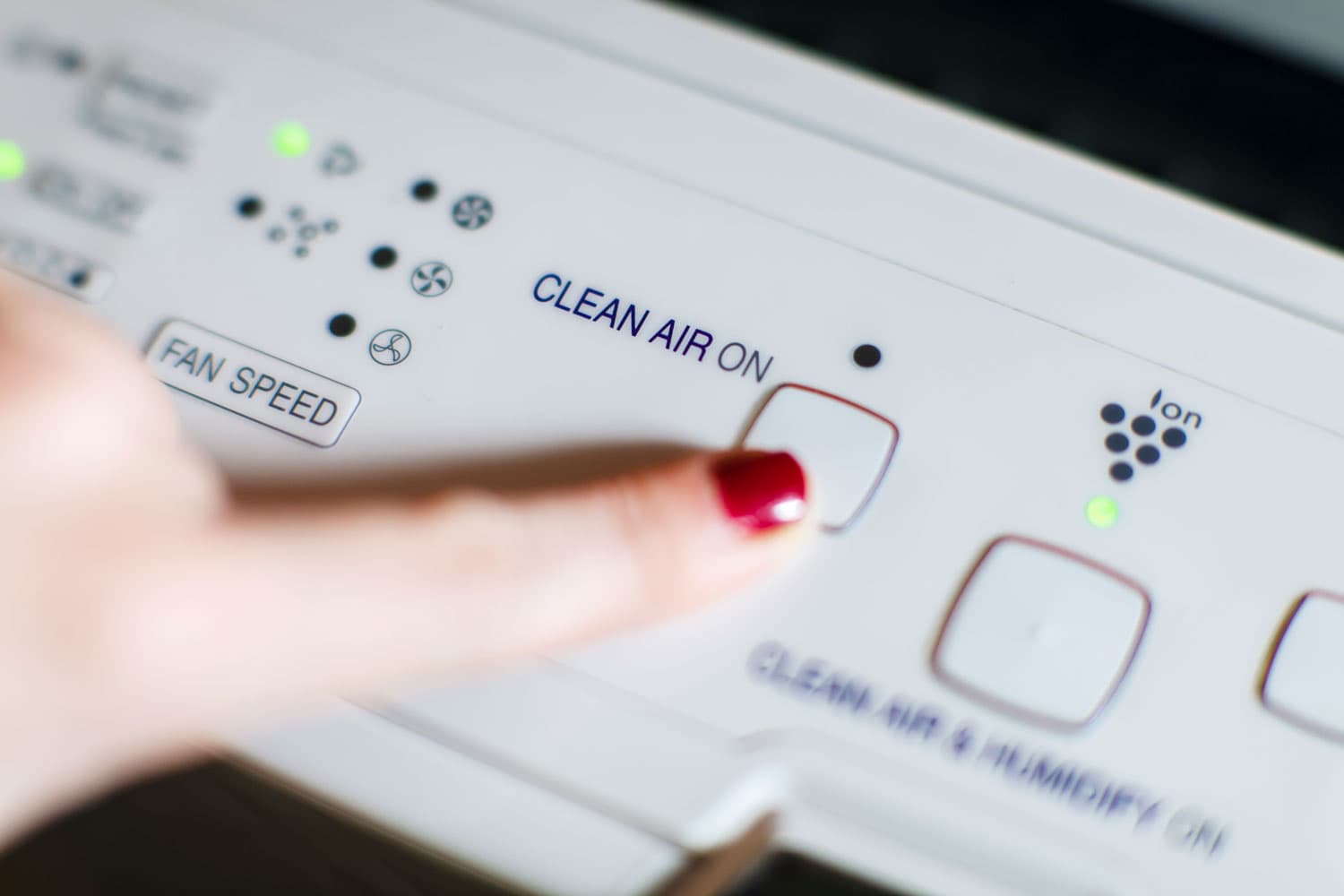
This is the most typical result. A float switch is integrated into most portable air conditioners. The float switch's purpose is to cut off the air conditioner if the condensate tank becomes full of water.
When an air conditioner's tank is full, it normally comes with an alarm to notify you of the situation. You'll know when it's time to empty the tank this way.
Overflowing of the condensate tank
If the float switch on your portable air conditioner is broken, you risk having water overflow. This isn't a major issue in and of itself, but it can result in water damage to your home.
Mold growth
Mold can form in air conditioners, which most people are unaware of. Portable air conditioners that haven't been emptied are prone to mold growth.
If water is left in the tank of your portable air conditioner, it produces a damp atmosphere that is ideal for mold growth.
Why Is A Portable Air Conditioner Leaking?
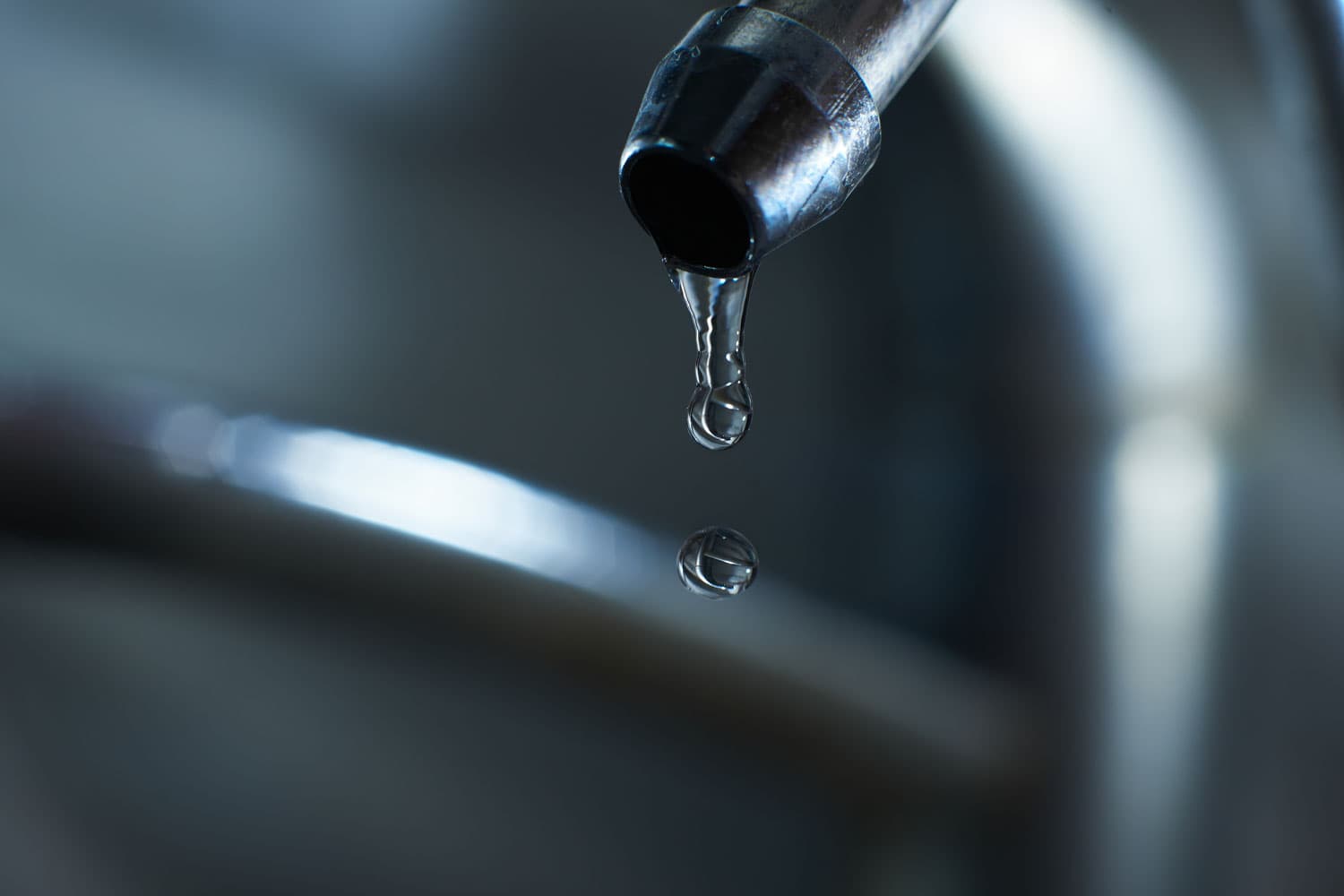
As the warm air in your home is cooled, air conditioners produce water. Water precipitates out of the air when it cools in your home and is collected in an AC tank.
However, if the air in your room is more humid than typical, your portable air conditioner will produce more water than usual. Mainly, the cause of the rise in humidity can be either internal or external factors.
Internal Factors
Humidity is generated by activities such as cooking and showering. If you have a large number of visitors, the humidity in your home might rise as a result of people's breathing, too.
External Factors
Humid air can also enter your home from the outside. If it's hot and humid outdoors, your air conditioner will produce water when it cools and dehumidifies the warm, moist air.
The presence of water indicates that your air conditioner is working properly. However, if it is leaking extra water, it could indicate that there is a source of humidity penetrating the air in your home.
To add to that, filthy air filters or a clogged drain line can make a portable air conditioner quickly fill with water.
How To Stop The Portable Air Conditioner From Leaking
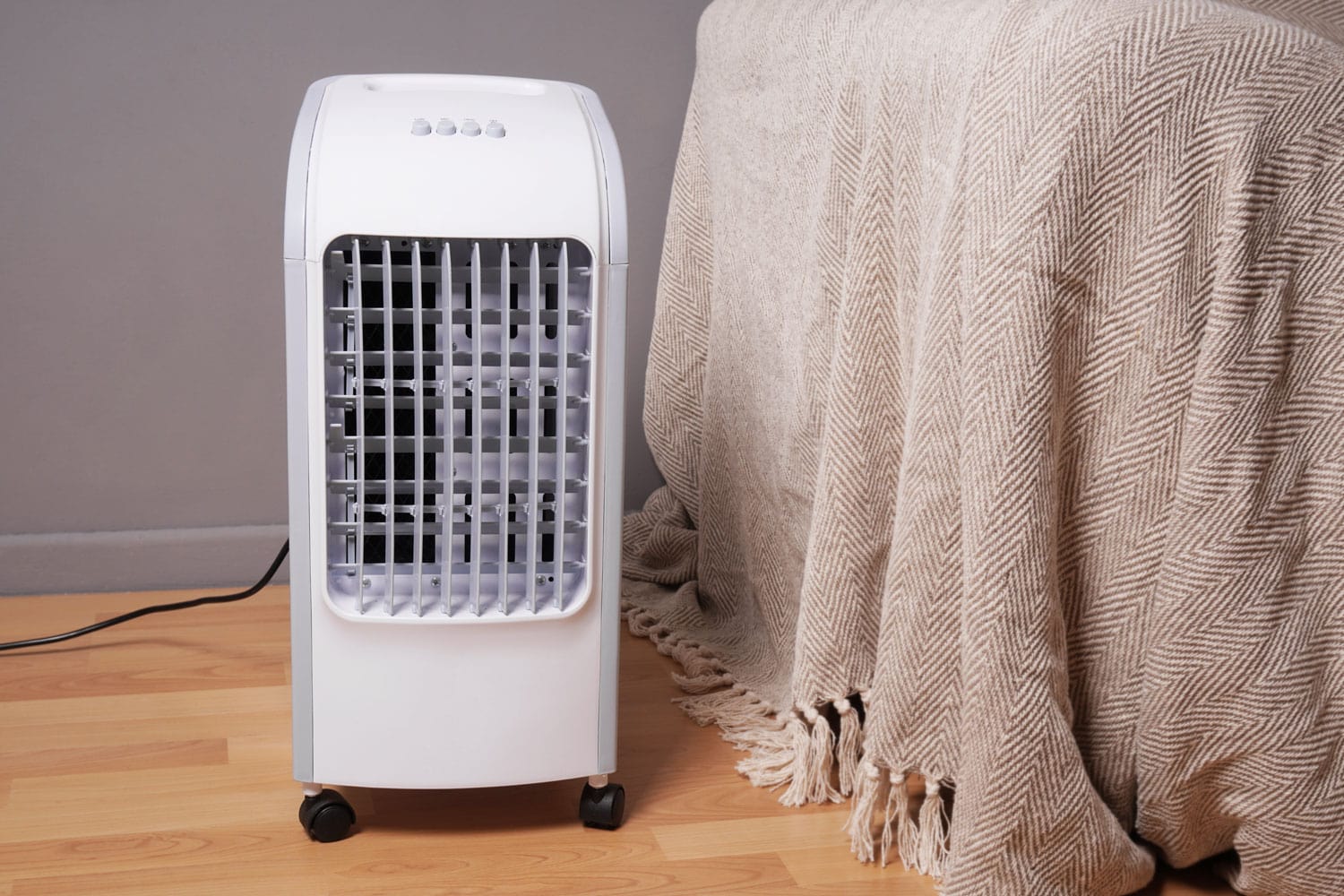
In this situation, you'll need to locate and eliminate the source of dampness. The penetration of outside air into your home is one source of excess humidity.
Warm damp air from the outdoors might enter your home through gaps around windows and doors. Make sure that all holes and gaps in your home are sealed to prevent outside air and humidity from entering.
Moreover, use a dehumidifier to eliminate extra moisture and prevent the air conditioner from overheating. Also, to eliminate any blockages in the AC unit, clean the filters, drain hose, and drain the tank.
How To Clean A Portable Air Conditioner
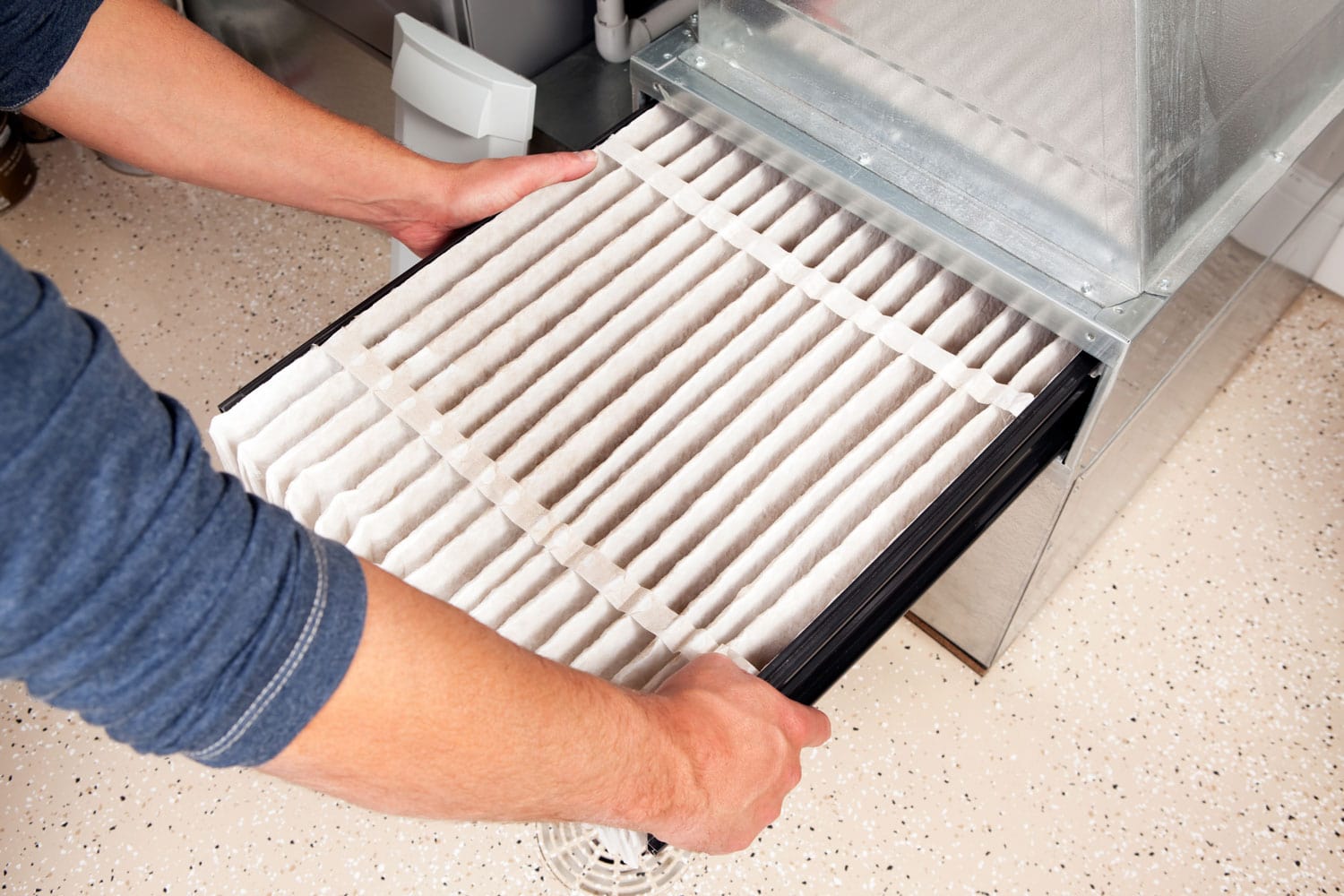
To keep your portable air conditioner running efficiently, it is recommended to clean the anti-dust filter once a week while it is in use. Remove dust from the filter with a vacuum cleaner.
If it's very filthy, soak it in lukewarm water and rinse it multiple times. Allow the filter to air dry after washing.
How Long Can A Portable Air Conditioner Run?
You can leave your portable air conditioner running indefinitely. You can typically run your air conditioner all season long if you clean the air filters and empty the condensate tank regularly.
However, this does not imply that you should leave your air conditioner on all of the time. It's a good idea to give your portable AC, like other mechanical equipment, occasional breaks.
Shutting down your portable air conditioner allows it to cool and prevents damage to its components. Regardless of whether you turn your air conditioner off, it should turn off after cooling a room regularly.
As your room cools down to the temperature setpoint, an adequately sized air conditioner will run in 10–20 minute intervals.
Can A Continuous Drain Be Set Up For Portable Air Conditioner?
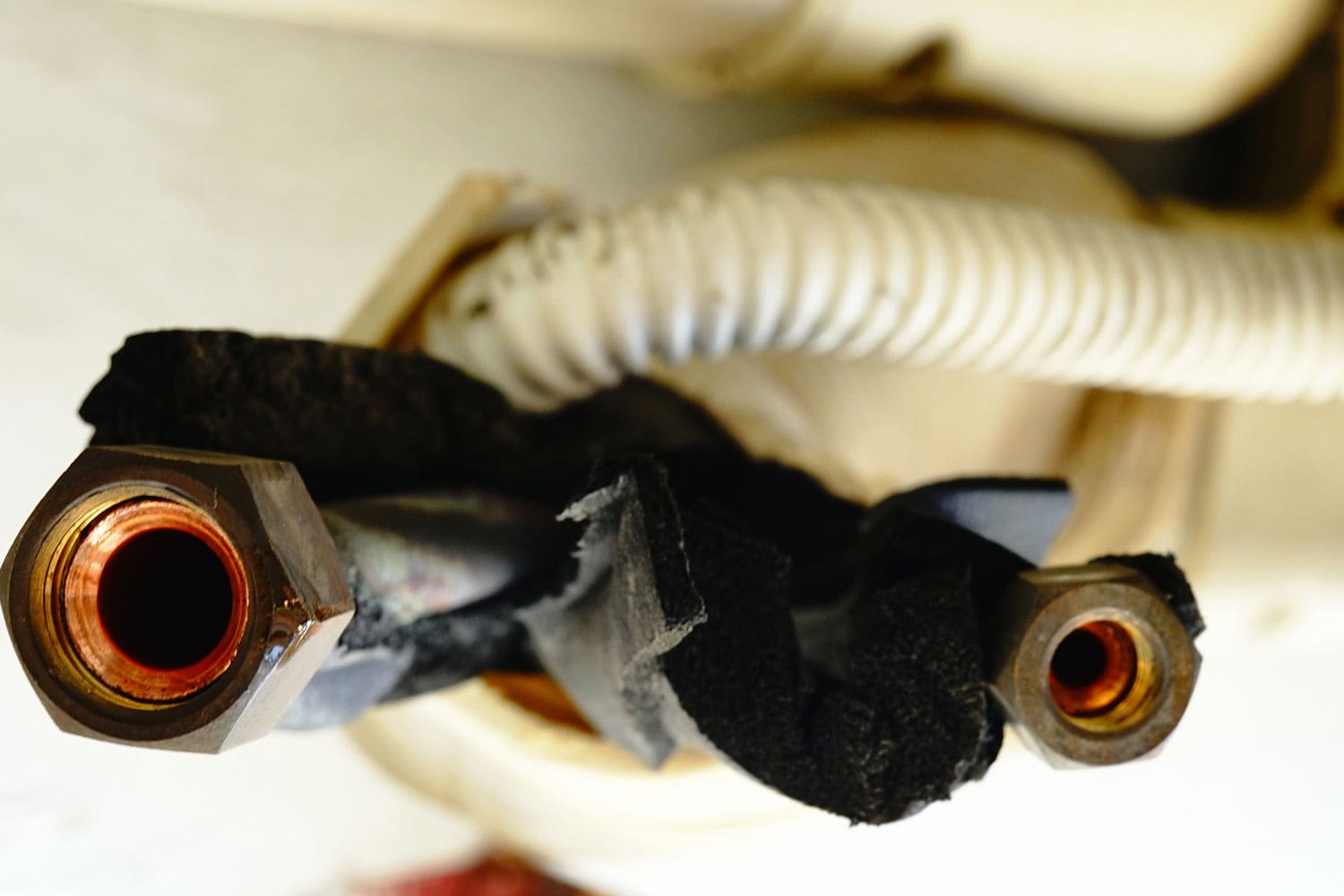
It is possible to continuously drain your portable air conditioner. You'll need to install a drainpipe if you want your portable air conditioner to run continually.
The condensate tank's water is automatically drained via the drainpipe. The drain hose is connected to the condensate tank on one end and a drain on the other. The condensate hose can alternatively be directed to drain outside.
Using a drain line will keep water from building in your condensate tank. You won't have to bother about emptying the condensate tank with this design.
However, doing this alternative still does not eliminate the presence of water in your condensate tank. Regularly clean the filter and check for mold growth from time to time.
What Are Common DeLonghi Portable Air Conditioner Problems: And How to Fix It?
Here are a few common problems you might encounter with your DeLonghi portable air conditioner and how to troubleshoot them:
1. The unit is only functional for a few minutes
Cause(s): There are various reasons for this to happen. It can be because the air exhaust hose is kinked or objects are blocking the air from the unit's discharge. It can also be because the hose is not properly linked to the unit.
How to troubleshoot: If the hose is tightly coiled, remove the kink in the area. Remove any object that obstructs the airflow from the unit. And firmly attach loose hose connection using fasteners.
2. The unit won't start or turn on
Cause(s): Your unit may not start since there is no power supply. This issue can also be caused by a tripped internal safety device.
How to troubleshoot: Make sure your portable air conditioner is connected to a wall socket rather than a power strip or an extension wire. Inspect for a blown fuse or a circuit breaker that has tripped. If the circuit breaker has been tripped, use a circuit tester to reset it.
3. The unit is not cooling the room
Cause(s): Most of the time, the issue is that the filter needs to be washed and is blocked. It can also be because of too much heat coming from the outside. Or it can be simply because your unit capacity is not enough to cool the room.
How to troubleshoot: You might try to remove the dirty filter and clean it. Remove the filter cage by opening the side air exhaust hose port. If not, you should get a professional to clean it for you.
In the case of your unit not cooling the room, you must first double-check that all doors, windows, and drapes are closed. Even if all of them are closed, heat sources such as an oven or a hairdryer could still be present in the room.
Make sure your room isn't bigger than the unit's capacity. If the space is bigger, you'll need to have a bigger air conditioner or two. Also, make sure the exhaust hose is connected properly and the dust filters are clean.
In Closing
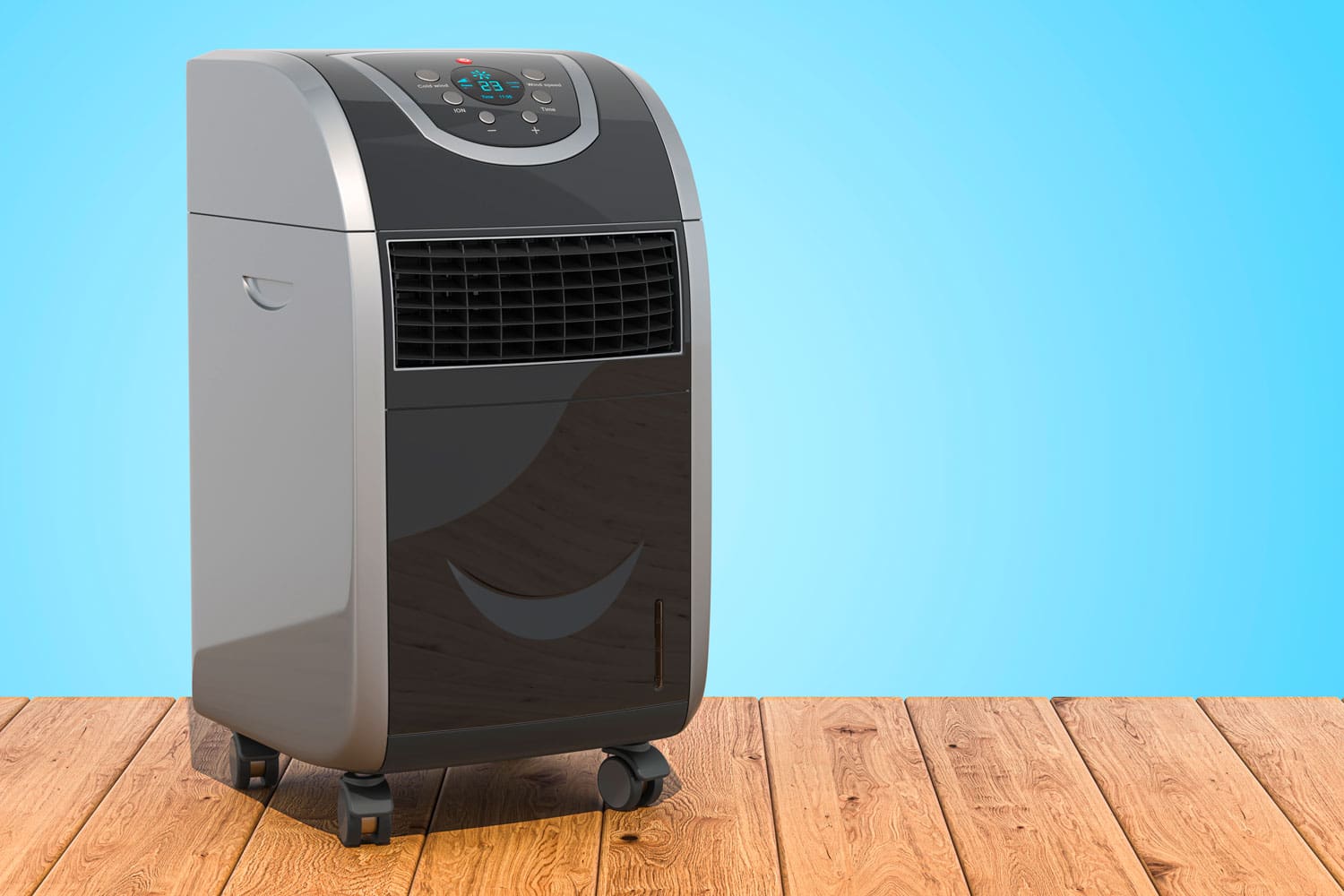
Portable air conditioners must be maintained regularly to perform correctly. Draining water from the condensate tank is one of the most vital tasks to keep your portable air conditioner working.
If you are hesitant to take charge, you can always call for help from professional air conditioning technicians to troubleshoot problems you have with your unit.
You might find our article on what to do if your DeLonghi air conditioner is leaking helpful.
You can also check these articles to learn more about portable air conditioners:
How Much Power Does A Portable Air Conditioner Use? [By BTU]
